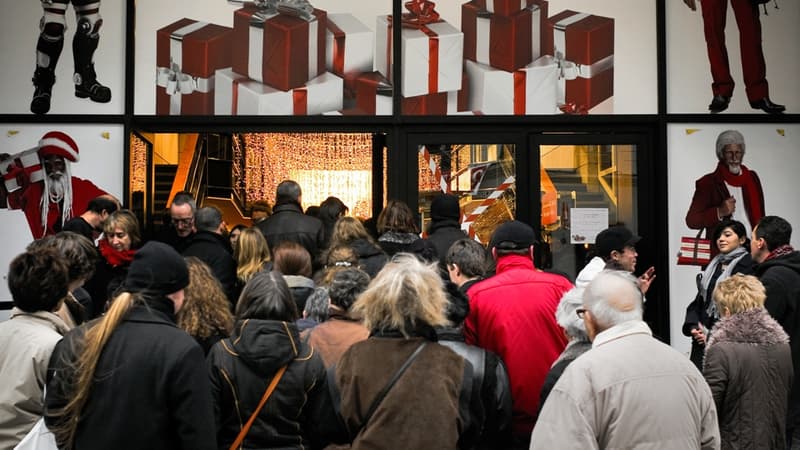For many, Christmas is synonymous with smiles, reunions and sharing, with its colorful world and its procession of decorations, films and songs. For others, it is the opposite: the end of year holidays are a delicate period to overcome.
Natalophobes, as they are called, suffer from an “irrational and uncontrollable fear of the New Year’s holidays and their symbols,” says Zoé Hérard, a psychologist, on her website.
In 2022, according to an Ipsos survey released by Nice-Matin, 44% of parents of young children and 39% of women said they are looking forward to the end-of-year holidays.
“I hate parties”
On social networks, testimonies of discomfort are not uncommon this year either. “The good anxiety attack before Christmas,” writes one Internet user. “Christmas is a time that I love, but it worries me a lot and I don’t understand why,” says another.
However, this is not a new phenomenon. And it doesn’t just affect the youngest. The National Audiovisual Institute (Ina) remembers that Alain Delon did not particularly like Christmas.
“I don’t like parties very much. As Édith Piaf said, I hate Sundays. I hate parties,” the actor admitted in 1989.
Race for gifts, heated family debates…
The causes of stress can be multiple. They are often the result of social pressure felt before the big day, which is why some people find it difficult to cope with the rush for Christmas presents and the demands of pleasing the recipient. Others face the menu puzzle, with a dish that must satisfy everyone. Especially since this year, inflation has put a lot of pressure on wallets.
Christmas Day is followed by family gatherings and sometimes angry topics. Whether personal (professional situation, single, children, etc.) or related to current events.
Natalophobia can also arise from the opposite situation, with absence of family and fear of loneliness on New Year’s Eve, which can overlap with seasonal depression.
“Social networks have nothing to do with this. Photos of idyllic family moments, gifts, posts of excessive conviviality, influence everyone’s feelings,” insists psychologist Zoé Hérard. “Happiness, in excess, when you don’t always feel good, can create an even bigger gap between expectations and reality.”
End-of-year celebrations, adds Santé magazine, can revive “the memory of grief or any other traumatic event associated with this period.” The simple sight of a tree or Santa Claus can act as a trigger
Consequences on the body
Natalophobia is not without health consequences. Roger Fiammetti, osteopath cited by Ina, assures that “the body expresses itself through psychosomatic disorders, such as tonsillitis, anxieties that come to the surface, neck stiffness, sciatica. The body suffers and expresses the discomfort felt in a very physical way.” . Digestive problems may also appear.
To protect yourself, Passeport Santé advises “avoiding negative feelings related to the end-of-year holidays” and “not waiting too long”: “Christmas must be ‘de-sacralized’ and ‘de-idealized’.”
Positive thinking and meditation can also be helpful, unlike isolation and excessive alcohol consumption. If anxiety persists, it is advisable to consult a general practitioner or specialist.
Source: BFM TV


